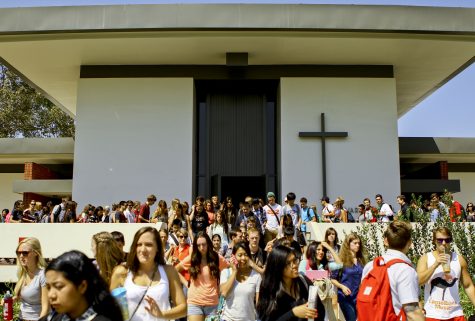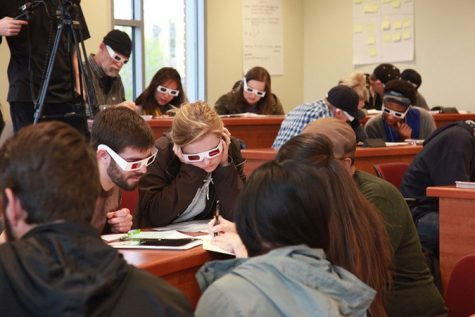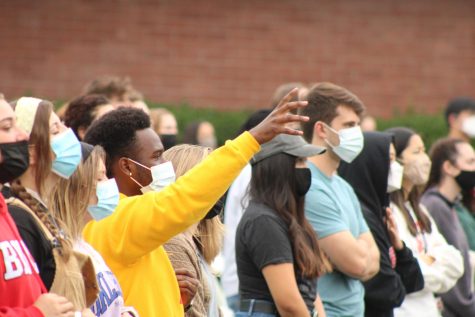Youcef Nadarkhani inspires students to consider martyrdom over leaving the faith
According to a recent survey, the majority of Biola students would stand firm in their faith when faced with persecution.
May 2, 2012
In a recent survey, 17 of 102 Biola students said they would recant their faith if it meant facing execution. The investigation was inspired by the persecution of Iranian pastor Youcef Nadarkhani. Nadarkhani has been imprisoned for more than 933 days, according to the American Center for Law and Justice.
Nadarkhani, a 35-year-old husband and father of two children, was arrested in October 2009 for apostasy, according to the ACLJ. He now faces execution for refusing to recant his Christian faith.
Survey yields mixed results about martyrdom
The results of the five-question survey revealed that not all Biolans feel they are called to be martyrs if put in Nadarkhani’s position. Fourteen students believed their family would want them to recant their faith to avert execution or imprisonment.
Kyle Donn, 2012 Missions Conference co-director, first heard about Nadarkhani’s case on Voice of the Martyrs’ website and he believes that the power of prayer will help spread awareness.
Voice of the Martyrs provides information daily on persecution cases around the world. It presents prayer requests and opportunities for people to write letters to the prisoners.
“This happens all the time … about 256 Christians are martyred everyday, that’s like five every minute,” Donn said. “They believe in the same Jesus and we’re going to spend eternity together.”
Most survey participants said they would stand up for their faith. Eighty-two students believed their family would want them to continue to share their faith, as it was something Jesus would do. Ninety-one students affirmed their willingness to tell others about their faith, even if it meant being imprisoned or killed.
“We need to know that Christ foretold us that we will be persecuted, disowned and even killed for our faith. We need to understand that death for one’s faith in the Eastern culture is an honor, not shame,” Arabic professor Victor Khalil said.
Nadarkhani’s situation has had a global impact and the ACLJ has been in contact with his lawyers to help publicize the most accurate information.
“What was seen, essentially, was a beginning of an awakening internationally, both at the societal level but also at the governmental level,” said Tiffany Barrans, international legal director for the ACLJ.
Interacting with the persecuted church
Alan McMahan, associate professor of intercultural studies, interacted with the persecuted church when he was a missionary in Indonesia.
“I lived as a missionary in Indonesia where Christians are regularly persecuted and churches were burned and people were killed for their faith,” McMahan said. “There are clearly at least a couple times in Scripture that there is a statement that if you deny me before man, I will deny you before my Father in heaven.”
The prospect of persecution for one’s faith came up in campus discussion earlier in the semester as well. Oscar Muriu finished Missions Conference on March 16 by asking students to join him on stage if they felt called into situations where they might be martyred. About 30 to 40 students stepped up.
“For this one I have asked, Lord, are you really asking me to state this before your children and to call forth this harvest? But I have not been able to shake it off,” Muriu said. “For some God places a terrible call … that is a call of martyrdom … and you will go with a one-way ticket, never really knowing if you will ever come back.”
Student opinions varied on martyrdom, but the overwhelming numbers proved that many would continue to stand up for their faith even if faced with execution or imprisonment.






